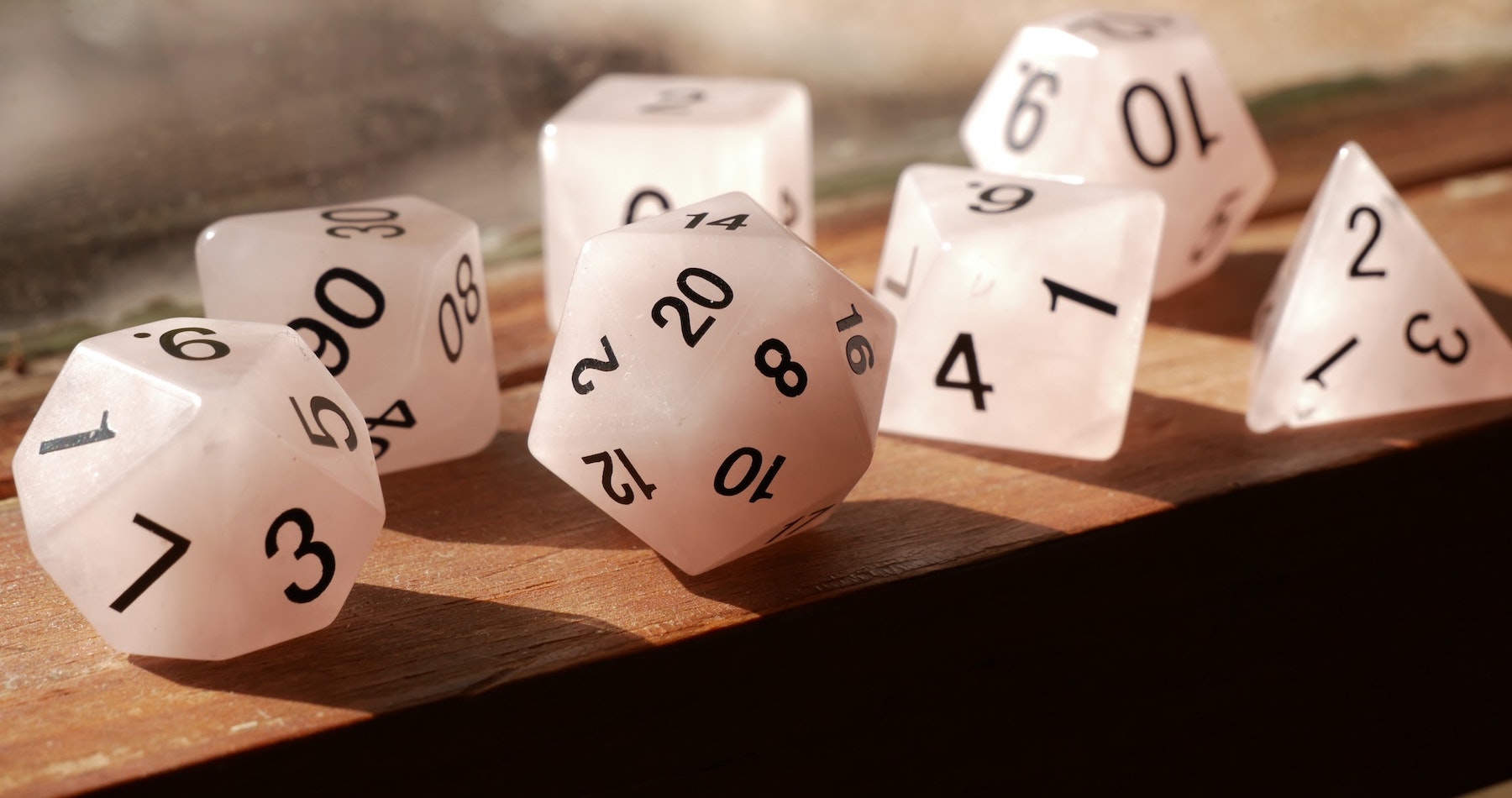Tuesday is, without doubt, my favorite day of the week. I rush home from work for a quick dinner, then seven people crowd around my dining room table to play Dungeons & Dragons (D&D), a fantasy tabletop role-playing game.
I got roped into my first game almost three years ago and quickly became a devotee. I love spending time with my friends exploring new worlds, interesting characters and fantastical abilities.
When I pull out my dice and my character sheet each week, I’m not just relieving stress with an entertaining hobby. In a study of more than 400 workers, researchers at San Francisco State University found that pursuing creative hobbies may help on-the-job performance, with individuals that regularly engage in a creative activity ranking up to 30% higher in performance indicators than those who don’t.
D&D definitely gives me the breathing room I need to quickly bounce back from a demanding day—whacking things with swords is a fantastic outlet to work out my frustrations. But beyond that, I’ve found that it’s a space where I can learn and practice useful skills, habits and mindsets. Here are a few of the lessons I’ve learned at the gaming table that have also found a home in my marketing toolbox:
Creativity
I was drawn to Crux by a shared passion for storytelling. D&D exercises my imaginative muscles and lets me explore different perspectives through my characters—a cheerful goliath who smites his enemies with divine lightning and a massive glaive, a temperamental elf who inspires friends and eviscerates enemies with her words, a silent halfling girl dual-wielding shortswords who seems to be everywhere at once.
The gaming table is a safe environment to take risks and try new things that may not work, simply because they sound like fun. It helps me foster a “no idea is a bad idea” mindset that I appreciate every time I jump into a brainstorming session.
Adaptability
There are always factors at play that I don’t have control over. The world created by the DM (Dungeon Master, game organizer/referee) is cultivated by every single player at the table.
Improvisation is the name of the game—a skill found in many think-on-your-feet hobbies. Christina Avellan, a UX researcher for Walmart eCommerce who performs stand-up comedy in her free time, says that it can help her roll with the punches in difficult situations without getting flustered. When faced with technical difficulties during an interview, she was “able to troubleshoot with everyone in a non-stressful, joking way, and had everyone laughing until our tools were back up and running.”
For me, each D&D session is invaluable practice at improvising and adapting to others’ actions and external factors, and an unpredictable crucible that forges the most beautiful, poignant, hilarious and horrible narratives. A halfling girl running from an arranged marriage is exposition; that halfling girl watching the villain murder her father and destroy her village makes the adventuring party’s quest more personal, the villain’s eventual defeat more rewarding.
Strategic thinking
That locked chest I’m wanting to open could be trapped. It could require my group to solve a puzzle to find the key, or the key could be hanging around the troll’s neck in the other room. Or, maybe, we just need a good set of thieves’ tools and a skilled Rogue.
Not every objective can be solved in the same way, so whether I’m in the deepest dungeon or a sunny conference room, I consider every tool at my disposal and evaluate my situation to determine the best path to reaching my goals. In the same way, the Crux team kicks off each new client engagement with an in-depth analysis of everything there is to know about the business, including its goals, industry and current marketing efforts.
We arm ourselves with this comprehensive perspective before developing a customized marketing strategy because we understand that “no company roadmap is complete without a marketing strategy that aligns with defined tactics to achieve business goals.” However, it doesn’t stop there. We’re constantly re-evaluating which marketing strategies are most effective through observation and analysis—just as I’ve learned fire damage isn’t very effective against fiends.
Interpersonal skills
I challenge you to find one hour in a business environment when you’re not working with someone. Communication and collaboration are essential to an effective marketing strategy, and in my adventuring party, they’re essential to our survival. Each player has a role they fill to support the entire group, from the “tank” and the “glass cannon” to the healer and the “face.”
By learning each individual’s strengths and communicating clearly about present needs, you can find the best approach to tackling a marketing campaign—and you can ensure your healer stays alive to revive the rest of the party.
Organization
More than once my adventuring party has been saved by the sudden realization of, “Oh, I wrote that down!” When an offhand remark in a brainstorm session could become your tagline, or when an innocuous item you pick up could be key to defeating a demon lord’s plan, you learn quickly that someone has to take notes.
As the party’s notetaker I’ve had plenty of practice distilling key details I’ll be able to easily reference later, and I quickly became known for my color-coded task lists in the office (don’t even get me started on bullet journaling).
Roll for initiative
I didn’t join my D&D group in a quest (pardon the pun) to develop my professional skills. It and other hobbies are important because they help me relax and connect with others. The way I play may also differ from how you enjoy D&D, and with the limitless possibilities the game offers, your experience will be unique to you.
If you find something that brings you joy – sports, book clubs, a cooking class – go for it! You never know what you’ll learn along the way and how that hobby will influence your process professionally. But if a collaborative storytelling game where you can play the main character you’ve always dreamt of being sounds like what you’re looking for, here’s how you can get things rolling.
What we bring to the table
A D&D party works best when each player uses their strengths to take on a specific role. A group full of wizards wouldn’t survive very long. With passions that range from tennis and dance to restoring furniture and photographing abandoned buildings, Crux’s diverse cast of characters shines in the same way. Want to learn more about the unique talents and complementary expertise we can bring to your team? Drop us a line.


